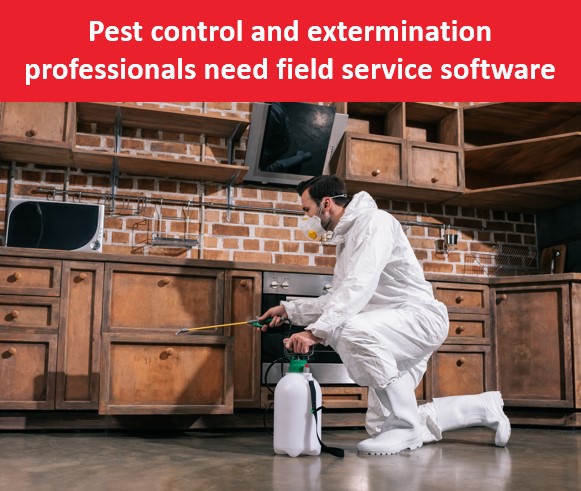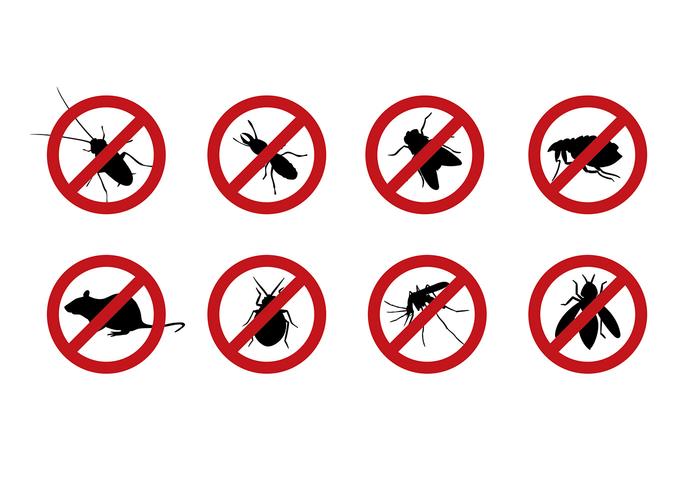Find the Best Exterminator Coquitlam for Fast and Reliable Pest Control
Safe and Trustworthy Bug Control for Lasting Protection
Efficient parasite management needs a diverse strategy that balances eco-friendly integrity with the demand for efficient insect suppression. The nuances of these approaches might not be promptly clear, triggering a better examination of the methods that can lead to sustainable insect control results.
Comprehending Insect Control Approaches
Insect control includes a selection of techniques focused on managing and removing unwanted bugs and rats that can endanger both health and residential or commercial property. Understanding these techniques is crucial for reliable pest management.
The main groups of pest control techniques include mechanical, organic, and chemical methods. Mechanical methods involve physical barriers and traps to avoid insect entry and capture unwanted species. Utilizing screens on windows or using sticky catches can dramatically lower pest populaces without presenting harmful substances - exterminator coquitlam.

Chemical insect control is often one of the most acknowledged approach, using chemicals to remove insects. These chemicals can be efficient but must be utilized with care to prevent adverse effects on non-target species and the environment.
Benefits of Eco-Friendly Solutions
Exactly how can environmentally friendly services change bug control techniques? The fostering of green parasite control techniques uses countless advantages, significantly improving the performance and safety of bug management (exterminator coquitlam). To start with, these services make use of natural active ingredients, minimizing the dependence on harmful chemicals that can position dangers to human health and wellness and the setting. This change not just safeguards family members and pets yet likewise minimizes the capacity for dirt and water contamination.

Another advantage is the positive effect on neighborhood biodiversity. Environment-friendly solutions are developed to target particular pests while protecting useful insects and wild animals, promoting a well balanced ecosystem. This technique aligns with the growing consumer need for sustainable methods, enhancing the reputation of insect control suppliers.
Integrated Bug Management Techniques
The implementation of green options naturally results in the adoption of Integrated Insect Monitoring (IPM) techniques, which better enhance bug control efficacy. IPM is an alternative strategy that combines several methods to manage bug populaces while minimizing environmental influence. This strategy highlights making use of biological, social, mechanical, and chemical controls, ensuring a well balanced and sustainable technique of insect administration.
One essential aspect of IPM is the thorough evaluation of parasite task and ecological problems. By checking parasite populaces and determining their life cycles, practitioners can implement targeted treatments that interfere with the parasite's habitat or lifecycle, lowering dependence on i thought about this chemical pesticides. In addition, cultural practices such as crop rotation and environment adjustment can considerably decrease insect establishment and reproduction.
Another vital element is making use of biological control agents, such as useful bugs or bacteria, which can naturally suppress insect populations. When chemical applications are needed, IPM prioritizes using low-risk chemicals and uses them uniquely, lessening direct exposure to non-target organisms and people.
Incorporating IPM techniques not only boosts pest control efficiency however also promotes a much safer environment, lining up with the growing demand for sustainable methods in insect management.
Safe Practices for Home Owners
Comprehending the significance of risk-free techniques in parasite control can encourage homeowners to successfully handle insect problems while securing their health and wellness and the atmosphere. Carrying out safe methods and safety nets is vital in decreasing exposure to dangerous chemicals.
Home owners must initially evaluate their atmosphere for problems that attract insects, such as standing mess, water, and food waste. Consistently cleaning and sealing entrance factors can deter insects from getting into the home. Making use of natural deterrents, such as crucial oils or diatomaceous earth, can supply reliable alternatives to chemical pesticides.
When chemical therapies are required, home owners Visit This Link need to go with items that are particularly identified as risk-free for residential use. It is necessary to follow application standards thoroughly to stay clear of too much exposure. Utilizing targeted therapies in areas where pests are identified, instead than covering splashing, can dramatically minimize chemical usage.
Last but not least, maintaining open communication with bug control experts is essential. Property owners should inquire about the safety and security of products utilized and request green alternatives whenever possible. By taking on these risk-free practices, homeowners can create a healthier living setting while properly handling bug issues.

Tips for Long-Term Defense
Establishing a pest monitoring strategy that stresses lasting security can considerably enhance the efficiency of the secure techniques previously discussed. To attain this, home owners must execute routine assessments of their property, concentrating on concealed areas such as attic rooms, basements, and crawl rooms. Early detection of pest activity is critical in avoiding infestations from taking hold.
These practices lower attractants that draw bugs into the home. Sealing entrance points, such as cracks around doors and windows, can properly block potential insect accessibility.
Landscape design needs to additionally be thought about; maintaining plants trimmed and maintaining a range in between vegetation and the home reduces hiding areas for insects. Utilizing natural deterrents, such as crucial oils or diatomaceous earth, can further discourage problems without turning to harsh chemicals.
Last but not least, teaming up with a specialist insect control service for periodic analyses can give an added layer of protection. These specialists can supply customized suggestions and advanced therapies, making certain that your home remains protected against pests in the long-term.
Conclusion
Finally, reputable and safe pest control requires a complex strategy that stresses eco-friendly approaches and incorporated insect management. By executing natural deterrents, conducting routine assessments, and keeping appropriate sanitation, residential property owners can substantially decrease bug populaces while shielding advantageous pests and the setting. Cooperation with expert parasite bed bug pest control control services improves the effectiveness of these techniques, making certain customized remedies that give enduring protection and assurance versus future infestations.
Effective bug administration requires a complex method that balances ecological honesty with the requirement for efficient insect suppression. The fostering of green parasite control techniques supplies many benefits, considerably enhancing the efficiency and safety of insect management.The execution of environmentally friendly services naturally leads to the fostering of Integrated Pest Management (IPM) strategies, which even more improve insect control effectiveness. exterminator coquitlam. By keeping track of parasite populations and determining their life cycles, experts can implement targeted interventions that interrupt the bug's environment or lifecycle, decreasing dependence on chemical pesticides.In conclusion, risk-free and dependable pest control requires a diverse approach that stresses environmentally friendly methods and incorporated bug administration